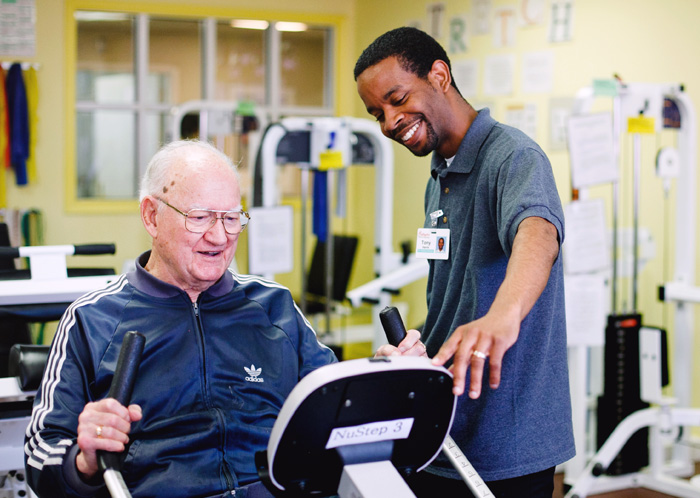Medical science deserves hearty congratulations for extending the lifespan of Americans to 80 years and beyond. This is truly an impressive feat, considering that most babies born in 1900 did not live past the age of 50.
But our longer lifespan may be a mixed blessing. A 2012 Global Burden of Disease Study found that for every year we’ve added to our life expectancy since 1990, we spend only about 9 months in good health. Clearly, we need to work harder to improve the aging experience by placing much greater emphasis on improving population health throughout the lifespan.
For this reason, the LeadingAge LTSS Center @UMass Boston has placed research on aging and health high on its research agenda. We’re committed to making a difference in the quality of life of older Americans by building a robust evidence base for healthy aging.

Read more about our work on aging and health:
The Rhode Island Healthy Aging Data Report is designed to help residents, agencies, providers, and governments understand the older adults who live in their cities and towns – their ages, living arrangements, health status, strengths, and vulnerabilities. The report, completed with support from the Tufts Health Plan Foundation, includes state and community-based health data related to 120 health indicators.
Status: Ongoing
Contact: Elizabeth Dugan
Read More:
Researchers are using data from the Massachusetts Healthy Aging Data Report to analyze depression outcomes among older adults in the Commonwealth of Massachusetts.
The Massachusetts Executive Office of Elder Affairs is funding the project, which is designed to assess how community factors affect mental health, and identify depression-related resources available in each community.
Status: Ongoing
Contact: Elizabeth Dugan
The National Institute on Aging is supporting this research project, which is designed to examine the nature and consequences of the relationship between very old parents and older adult children. Researchers are studying features of these relationships that may be associated with greater risk for poor well-being and care-related outcomes. The study is also examining the emotional support and practical help older adult children provide to their parents, and the kinds of support the very old parent can still offer his or her child.
Status: Ongoing
Contact: Kathrin Boerner
Read More:
Study to Explore Ties Between Elders and Their Older-Adult Children
Researchers are developing in-depth knowledge about the long-distance caregiving experience.
This study, funded by The National Institutes of Health and Fordham University, will be used to adapt existing evidence-based caregiver interventions to the needs and circumstances of long-distance caregiving.
Status: Ongoing
Contact: Kathrin Boerner
The LeadingAge Center @UMass Boston is partnering with the New York Zen Center for Contemplative Care to understand the impact of a contemplative model on end-of-life care provided in residential settings.
Researchers will examine program implementation and stakeholder experiences, focusing on quality of care, quality of life, and service utilization.
Status: Ongoing
Contact: Marc Cohen
Read More:
Other Areas of Work
WORKFORCE
Exploring strategies for strengthening the LTSS workforce
HOUSING PLUS SERVICES
Assessing the role of housing plus services models in affordable senior housing communities
NURSING HOMES
Identifying evidence-based practices to enhance nursing home quality
FINANCING
Finding new approaches to financing long-term services and supports
CONSUMER ENGAGEMENT
Engaging older adults in our work, and encouraging other LTSS organizations to do the same
AGING & HEALTH
Building a robust evidence base for healthy aging
